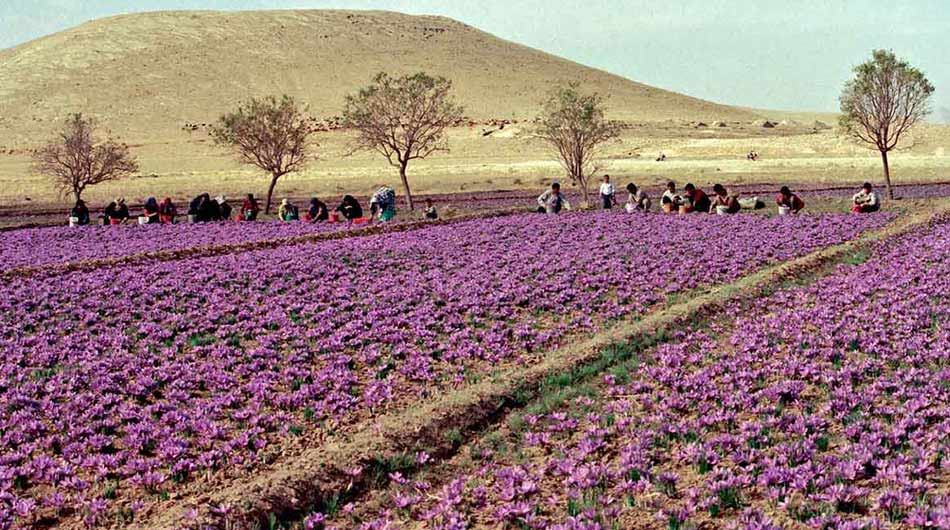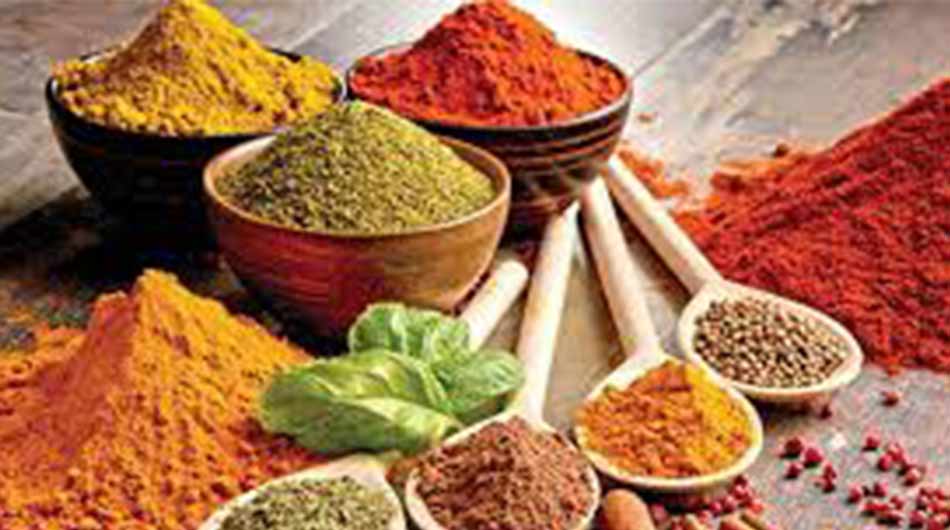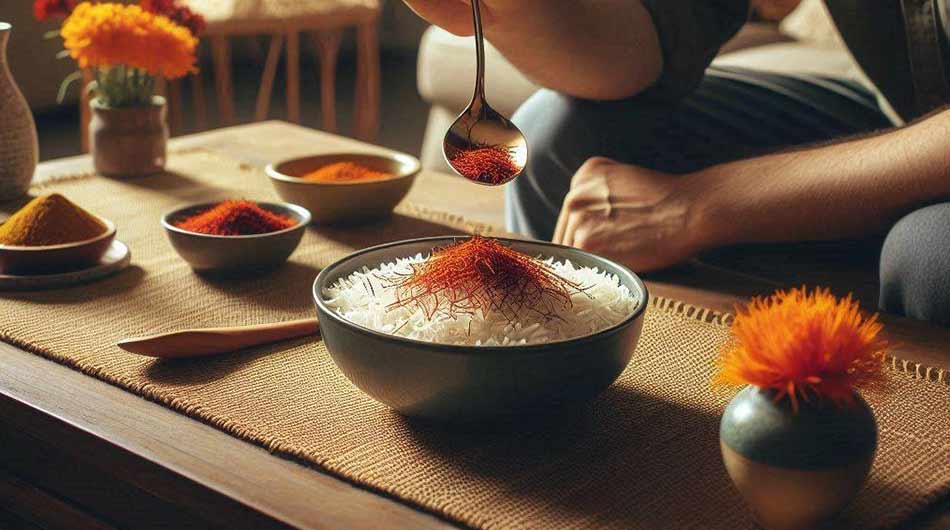Saffron Cultivation: The Spice’s Importance and Production
Saffron, often called the “red gold,” is one of the world’s most valuable and sought-after spices. Revered for its vibrant color, unique flavor, and medicinal properties, saffron has been cultivated for thousands of years. This precious spice is derived from the stigmas of the Crocus sativus flower, and it takes around 75,000 blossoms to produce just one pound of saffron. The labor-intensive process and the spice’s numerous applications make it one of the most expensive ingredients in the world. This article explores the significance of saffron, its cultivation process, and its cultural and economic importance.
The Significance of Saffron
Saffron has held a prominent place in various cultures throughout history. It is believed to have originated in Iran, where it has been cultivated for more than 3,000 years. Today, Iran remains the largest producer, supplying over 90% of the world’s saffron. The spice’s historical importance is evident from its mention in ancient texts, where it was used in everything from religious rituals to traditional medicine and culinary applications.
Saffron’s unique properties make it valuable in several fields:
- Culinary Uses: Saffron is prized for its ability to add a distinctive color, aroma, and flavor to dishes. It is a staple in many global cuisines, especially in Persian, Indian, and Mediterranean cooking. Dishes like Persian rice, Spanish paella, and Indian biryani rely on saffron to create their characteristic flavors.
- Medicinal Applications: In traditional medicine, saffron has been used to treat ailments like depression, menstrual pain, and digestive issues. Modern research has shown that saffron contains compounds like crocin and safranal, which have antioxidant, anti-inflammatory, and mood-enhancing properties.
- Cosmetic and Dyeing: The vibrant red color of saffron has made it a popular ingredient in dyes and cosmetics. Historically, it was used as a natural dye for textiles and as a luxurious ingredient in skincare products.
- Cultural and Religious Symbolism: Saffron has also been associated with rituals and spirituality. In various cultures, it is used during ceremonies and symbolizes purity, wealth, and good fortune.
 The Cultivation Process
The Cultivation Process
The cultivation of saffron is a delicate and labor-intensive process that requires specific environmental conditions. The Crocus sativus flower thrives in dry, warm climates with well-drained soils. The primary saffron-growing regions are found in Iran, Spain, India (particularly Kashmir), and parts of Greece and Afghanistan.
- Planting the Corms: Saffron is propagated through corms (bulb-like structures) rather than seeds. These corms are planted in late summer or early autumn in fields with loose, well-tilled soil. The soil must be rich in organic matter and have good drainage to prevent waterlogging, which can damage the corms.
- Flowering Season: The Crocus sativus blooms in mid-autumn, producing purple flowers with three vivid red stigmas, which are the source of saffron. The flowers bloom early in the morning and must be harvested quickly, as they wither by midday. This short blooming period requires a large workforce to ensure the flowers are picked at their peak.
- Harvesting and Processing: Harvesting saffron is an incredibly delicate process. Workers handpick the flowers, and the stigmas are carefully separated from the petals. Since each flower produces only three stigmas, tens of thousands of flowers are needed to gather even a small quantity of saffron. The stigmas are then dried using specialized techniques to enhance their flavor, color, and aroma. This drying process is crucial, as it determines the quality of the saffron.
- Grading and Quality Control: Saffron is graded based on its color, aroma, and flavor intensity. The most valuable saffron is deep red with no yellow or white parts. High-quality saffron is typically graded as “Super Negin” or “Sargol,” while lower grades include more yellow and white strands, which are less potent.
 Economic and Cultural Impact
Economic and Cultural Impact
For many regions, saffron cultivation is a vital part of the economy and cultural identity. In Iran, for instance, saffron production is a major industry, providing livelihoods to thousands of farmers and workers. The delicate nature of saffron farming means that it cannot be easily mechanized, preserving traditional harvesting methods that have been passed down through generations. The spice’s high market value also makes it an important export product, contributing significantly to the local economies of saffron-producing regions.
In addition to its economic role, saffron plays a significant part in the cultural and social fabric of these regions. Festivals celebrating the saffron harvest are common in places like Iran and Spain, where communities come together to honor the tradition and share in the hard work of harvesting. The spice is often featured in regional dishes that are central to the cultural identity of these areas.
Challenges in Saffron Cultivation
Despite its high value, saffron cultivation faces several challenges. Climate change, water scarcity, and soil degradation are significant threats to saffron-producing regions. The need for consistent irrigation and the delicate balance between temperature and humidity make saffron crops vulnerable to environmental changes. Moreover, the high labor costs associated with harvesting and processing saffron have led some farmers to abandon the trade in favor of more profitable crops.
Adulteration and fraud also pose challenges in the saffron market. Given its high price, saffron is often mixed with lower-quality ingredients or dyed to enhance its appearance. Ensuring the authenticity and quality of saffron is essential to protecting both producers and consumers.
Tags:Adventure holidays, Best time to travel to iran, best tour operator iran, Cultural sites of Iran, Culture of Iranian People, Economy of Travel, Holiday in Iran, Iran Architectural, iran attractions, Iran country, Iran cultural, iran destinations, Iran enriching experience, Iran sightseeing tours, iran Solo trip, iran tour, Iran tour packages, iran tourist attractions, Iran travel agency, iran travel expenses, Iran Travel Guide, Iran Travel Tips, Iranian culture, Iranian Hospitality, Iranian mosques, must-visit Iran, persia tour, red gold, Saffron, Saffron Cultivation, spices, Surfing In Iran, top tourist destinations, travel to iran, Traveling to Iran, travelling to iran, trip to iran, vacation packages, visit iran, درناگشت



 The Cultivation Process
The Cultivation Process Economic and Cultural Impact
Economic and Cultural Impact